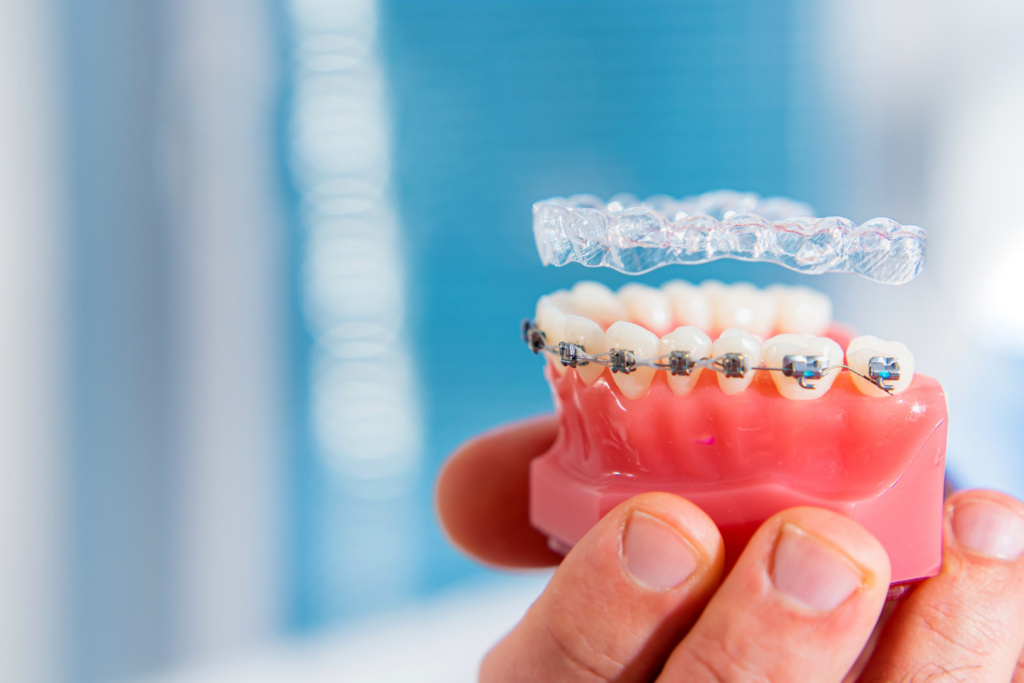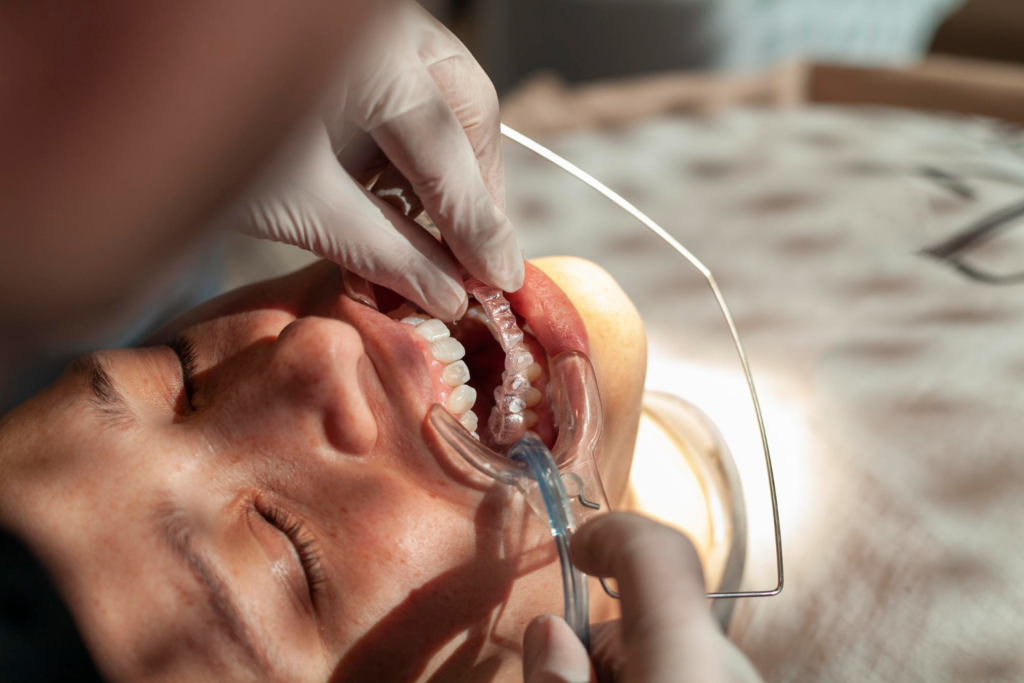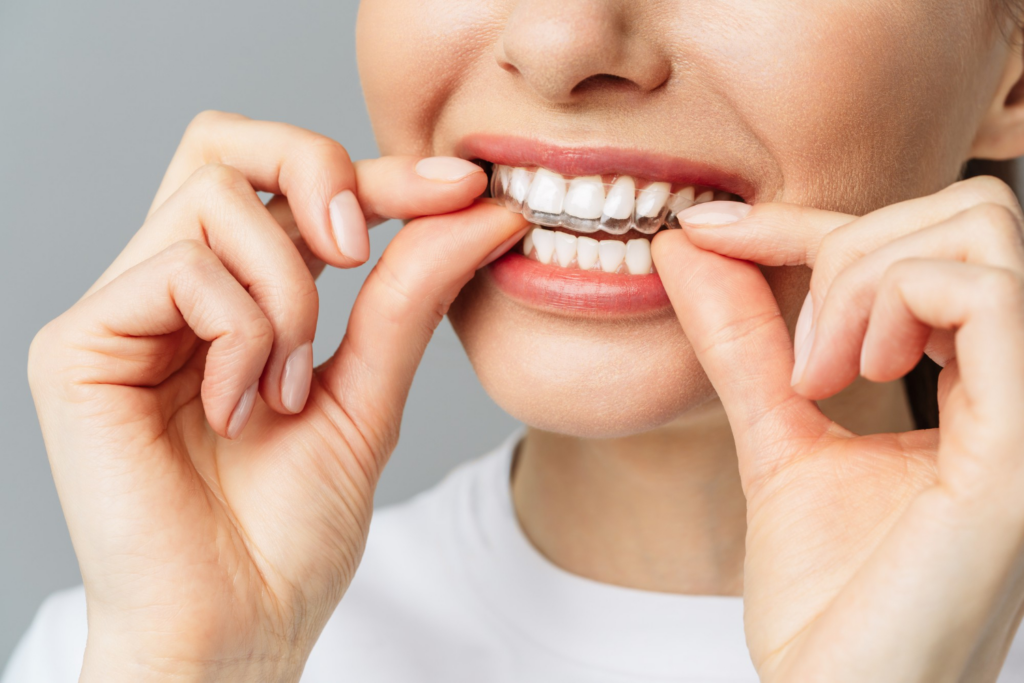This post contains affiliate links, and we will be compensated if you buy after clicking on our links
Show Contents
Hide Contents
 Permanent Retainers
Permanent RetainersBeyond Braces: The Miracle of Permanent Retainers
Those who have had braces are aware that the treatment process doesn’t conclude after braces removal. Retainers play a crucial role in preserving straightened teeth; for several years, detachable retainers have been the preferred choice.
Nonetheless, a permanent retainer has become increasingly popular due to its various advantages.
We will delve into the realm of permanent retainers, examine their pros and cons, and discuss some of the questions that may already be on your mind.
What are Permanent Retainers?
 What are Permanent Retainers?
What are Permanent Retainers?
Permanent and removable retainers are utilized to position teeth after orthodontic treatment properly. However, if you have no plan to remove it every hour, choose permanent retainers.
Permanent retainers consist of a thin wire that is bonded to the back of the teeth, effectively preventing them from reverting to their original positions. Unlike removable retainers, they do not necessitate daily insertion and removal.
Pros of Permanent Retainers
 Pros of Permanent Retainer
Pros of Permanent Retainer
Permanent retainers have various benefits over removable retainers. Firstly, they don’t require daily insertion and removal, which can be inconvenient and increase the risk of loss or damage.
Secondly, since they are fixed in place, there is no need to worry about accidentally misplacing or forgetting to wear them.
Furthermore, a permanent retainer is more effective in maintaining the proper positioning of teeth since they are constantly applied. Lastly, they have a longer lifespan than removable retainers, which may need to be replaced more frequently due to wear and tear.
Cons of Permanent Retainers
 Cons of Permanent Retainer
Cons of Permanent RetainerPermanent retainers have a couple of drawbacks, particularly in cleaning the upper teeth.
Because they are firmly attached, cleaning around permanent retainers can be difficult, which can lead to the buildup of plaque. Failure to address this issue adequately may lead to cavities or gum disease. It can be tricky to maneuver a toothbrush around a permanent retainer while cleaning.
Moreover, a permanent retainer is more susceptible to breakage or detachment, which can be expensive to repair.
The Risks of Faulty Bonded Retainers
 The Risks of Faulty Bonded Retainer
The Risks of Faulty Bonded RetainerWhile a permanent retainer is a great option, it comes with risks. If the bonding material used to attach the retainer to the teeth fails, the retainer can become detached, which can cause the teeth to shift back to their original positions.
This is why it’s essential to have regular dental checkups to monitor the condition of the permanent retainer.
How to Floss a Permanent RetainerFrequently Asked Questions
What options do you have if you don’t want removable retainers?
Apart from a permanent retainer, a lingual retainer is also available if you don’t want removable retainers. These retainers are attached to the back of the teeth but can be removed when necessary. For those who are hesitant to commit to a permanent retainer, lingual retainers may serve as a good alternative.
How long does a person wear a permanent retainer?
Permanent retainers are designed to be worn indefinitely, which means they can be a long-term solution for maintaining the position of the teeth.
What can I do to minimize problems with a fixed retainer?
Proper care and maintenance are essential for minimizing problems with a fixed retainer. This includes daily brushing and flossing, using a Waterpik to remove food particles, and scheduling regular dental checkups.
How much do fixed retainers cost?
The price of a fixed retainer differs based on the orthodontic practice’s location and the type of retainer used. Typically, a permanent retainer can cost anywhere between $150 to $500 on average.
Do permanent retainers work as well as removable retainers?
Yes, a permanent retainer works just as well as a removable retainer in maintaining the position of the teeth.
Conclusion
Permanent retainers provide a durable solution for preserving the alignment of teeth after orthodontic treatment. Though there are risks associated with them, these can be mitigated through proper care and upkeep.
By familiarizing yourself with the advantages and disadvantages of permanent retainers, you can make an informed decision on whether or not to opt for a permanent retainer.
Depending on the day, you’ll find Rebecca in a well thought-out ensemble that she handcrafted herself, or in hiking and rock climbing gear. An avid outdoorswoman, cyclist, and cat lover, Rebecca reminds us all on the Groom+Style team just how much we need to get outdoors. She’s worked in spas and salons off and on before going full-time with the G+S team. Linkedin: https://www.linkedin.com/in/rebecca-moses-3158b914b/
View all posts